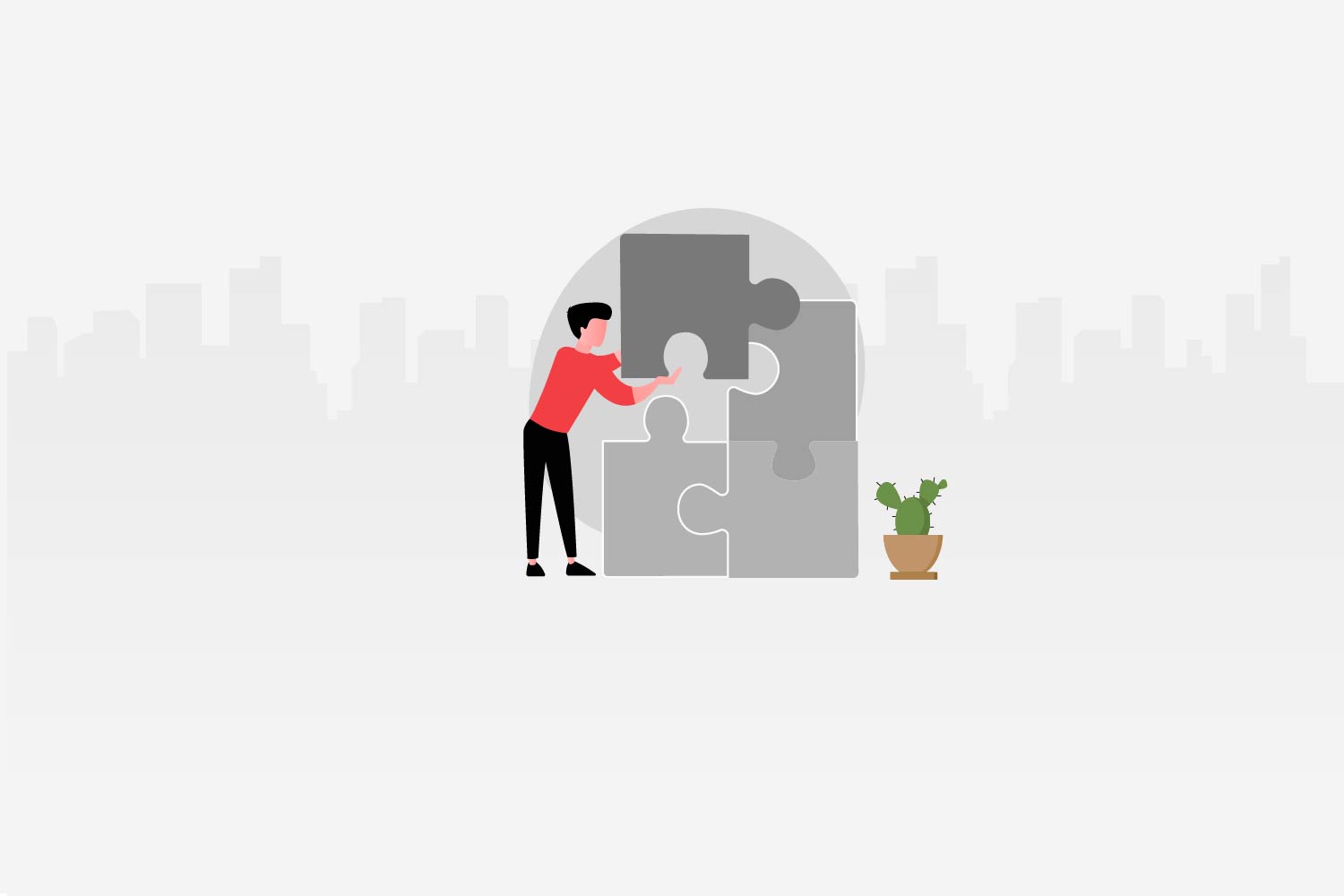In today’s rapidly evolving world, the significance of diversity, inclusivity, and mutual respect in the workplace has never been greater. Organizations that prioritize creating a respectful and harmonious work environment reap numerous benefits, including increased employee satisfaction, heightened productivity, and a competitive edge in the market. One vital aspect that underpins these principles is the concept of tolerance in the workplace.
Tolerance skill goes beyond merely acknowledging differences; it is about embracing and valuing them. It involves treating all individuals with dignity and respect, irrespective of their backgrounds, beliefs, or identities. The power of tolerance lies not only in its impact on individual employees but also in its influence on the overall culture and success of an organization.
Understanding the foundation: what is tolerance in the workplace?
In today’s diverse and multicultural work environments, fostering a respectful and inclusive atmosphere is paramount for the overall success and well-being of an organization. Central to this objective is the concept of tolerance in the workplace. Tolerance can be defined as the capacity to accept and respect individual differences, including beliefs, backgrounds, cultures, and perspectives, without judgment or prejudice.
In a recruitment context, understanding and assessing tolerance in potential candidates play a pivotal role in building a respectful work environment. When employees are tolerant, they not only embrace diversity but also actively promote a culture of mutual understanding and acceptance. This, in turn, paves the way for enhanced teamwork, open communication, and heightened creativity.
Assessing tolerance during the hiring process allows organizations to identify individuals who not only possess the necessary skills and qualifications but also exhibit a genuine commitment to embracing diversity. Such candidates are more likely to thrive in a collaborative and harmonious work environment, enabling the company to attract and retain top talent.
Why assessing tolerance is crucial in recruitment
In the quest for creating a diverse and inclusive workplace, assessing tolerance during the recruitment process emerges as a crucial step. Inclusivity goes beyond merely hiring individuals from different backgrounds; it necessitates nurturing an environment where every employee feels respected, valued, and empowered. This is where tolerance plays a transformative role.
When organizations prioritize tolerance in their recruitment strategy, they signal their commitment to creating a safe space where employees can bring their authentic selves to work. By seeking candidates who demonstrate tolerance, organizations actively weed out those who may perpetuate discrimination, bias, or harmful behaviors.
A diverse workforce fosters creativity and innovation, but true inclusivity requires a culture that embraces and celebrates those differences. Assessing tolerance in candidates helps identify individuals who are more likely to engage with diverse perspectives openly, without prejudice. This, in turn, stimulates open dialogue and collaboration, leading to better problem-solving and increased productivity.
Tolerance also acts as a powerful tool in breaking down barriers and overcoming stereotypes. When employees witness a commitment to tolerance from the top-down, they are more inclined to follow suit, promoting a ripple effect throughout the organization.
The link between tolerance and respect: building a positive work culture
In any thriving organization, respect serves as the cornerstone of a positive work culture. The interconnection between tolerance and respect is undeniable, as one reinforces the other in creating a harmonious and supportive environment.
When tolerance is embedded within the recruitment process, it sets the tone for cultivating respect among employees. By consciously selecting candidates who exhibit tolerance, organizations foster an inclusive mindset that embraces diversity and rejects discrimination.
A respectful work culture is one where individuals feel safe expressing their opinions, even when they differ from the majority. Tolerance nurtures an atmosphere where diverse perspectives are acknowledged, listened to, and valued. As a result, employees are more willing to contribute their unique ideas and insights, enriching team dynamics and problem-solving capabilities.
Furthermore, a culture of respect fueled by tolerance bolsters employee morale and engagement. When individuals feel respected for who they are, they are more likely to be motivated, committed, and loyal to their organization. This leads to reduced turnover rates and a more cohesive, collaborative workforce.
Leveraging tolerance in hiring processes
In today’s highly diverse and multicultural world, eliminating bias and discrimination from the hiring process is a critical imperative for any organization striving for fairness and inclusivity. Tolerance, when integrated into recruitment strategies, becomes a powerful tool in mitigating unconscious biases and creating a more level playing field for all candidates.
Unconscious biases are deeply ingrained attitudes and stereotypes that influence decision-making without our awareness. These biases can unconsciously sway hiring managers towards or against certain candidates based on factors like gender, race, age, or background. By consciously assessing tolerance in candidates, organizations can begin to identify those who are more likely to challenge and overcome these biases.
Tolerance enables hiring managers to recognize the value of diverse perspectives and experiences, allowing them to make more informed and equitable decisions. A workforce that embodies tolerance is less likely to perpetuate discriminatory practices and is more likely to foster an environment where everyone has an equal opportunity to succeed.
By leveraging tolerance as a guiding principle in recruitment, organizations take a significant step towards building a reputation as an inclusive employer. This can attract a wider pool of diverse talent, leading to a competitive advantage in the marketplace.
The role of tolerance in creating harmonious work relationships
Team dynamics form the backbone of a successful and productive workplace. The ability of individuals to collaborate, communicate, and build strong relationships with their colleagues is crucial for achieving collective goals. Tolerance plays a pivotal role in shaping these dynamics and fostering a harmonious work environment.
When team members exhibit tolerance towards each other’s differences, it sets the stage for open communication and understanding. Rather than allowing potential conflicts or misunderstandings to escalate, a tolerant team embraces diverse perspectives and seeks common ground. This not only enhances problem-solving but also builds trust and camaraderie among team members.
A culture of tolerance encourages employees to express themselves authentically, without fear of judgment. This kind of psychological safety empowers individuals to contribute their unique strengths and ideas, leading to increased creativity and innovation within the team.
Moreover, tolerance also serves as a buffer against workplace toxicity. When team members respect one another’s boundaries and treat each other with dignity, it reduces the likelihood of hostility and creates a supportive atmosphere where individuals can flourish.
How assessing tolerance drives innovation and creativity
In the modern business landscape, diversity is widely recognized as a driving force behind innovation and creativity. A diverse workforce brings together individuals with unique perspectives, experiences, and skills, leading to a rich pool of ideas and solutions. Tolerance, as a fundamental aspect of fostering diversity, plays a significant role in unlocking the full potential of innovation within an organization.
When organizations prioritize assessing tolerance in their recruitment efforts, they actively seek candidates who not only possess diverse backgrounds but also embrace and celebrate those differences. Tolerant employees are more open to exploring new ideas and receptive to feedback, creating an atmosphere where innovation can thrive.
Tolerance paves the way for constructive debates and intellectual exchange, where employees feel encouraged to challenge the status quo and propose creative solutions. In such an environment, individuals are more willing to take calculated risks and experiment with novel approaches, driving continuous improvement and pushing boundaries.
Additionally, a culture of tolerance empowers employees to bring their whole selves to work, without the need to conform to rigid norms or expectations. This authenticity is a catalyst for creativity, as individuals are free to express their unique perspectives and contribute to the organization’s collective creativity.
Tolerance’s impact on workplace disputes
In any workplace, conflicts are inevitable. Differences in opinions, communication styles, and work approaches can occasionally lead to tensions among employees. However, an organization that values and promotes tolerance can effectively mitigate conflicts and foster a culture of open communication and resolution.
Tolerance allows employees to approach conflicts with empathy and respect. Instead of resorting to confrontations or seeking to dominate the conversation, tolerant individuals actively listen to the perspectives of others and try to understand their viewpoints. This leads to more constructive discussions and a higher likelihood of finding mutually beneficial solutions.
By embracing tolerance, organizations can create an environment where employees feel safe to voice their concerns without fear of retribution. When team members are confident that their opinions will be respected, they are more likely to engage in transparent and honest communication, addressing issues before they escalate into significant problems.
Furthermore, tolerance in the workplace helps foster a culture of conflict resolution rather than avoidance. Rather than ignoring conflicts or letting them simmer beneath the surface, tolerant organizations encourage employees to seek mediation and address issues promptly. This not only strengthens relationships among team members but also enhances overall team productivity.
Long-term benefits of prioritizing tolerance in recruitment strategies
While the immediate benefits of assessing tolerance in recruitment are evident, the long-term advantages extend far beyond the initial hiring process. By prioritizing tolerance as a core value in recruitment strategies, organizations set themselves on a path towards sustainable growth and success.
A workplace that embraces tolerance cultivates a positive reputation both internally and externally. Existing employees feel a sense of pride and loyalty, knowing they are part of an organization that values diversity and treats all individuals with respect. This positive perception contributes to higher employee retention rates and attracts top talent, creating a competitive edge in the talent market.
Externally, an organization known for its inclusive and tolerant work environment becomes an employer of choice for candidates from diverse backgrounds. As word spreads about the organization’s commitment to tolerance, it becomes a magnet for talent seeking an environment that celebrates their uniqueness and allows them to thrive.
Furthermore, embracing tolerance leads to a stronger and more cohesive workforce. Employees from diverse backgrounds bring varied perspectives and innovative ideas, leading to enhanced problem-solving capabilities and adaptability in an ever-changing business landscape.
Conclusion
As we conclude this blog series, it is evident that tolerance is not just a buzzword; it is a catalyst for positive change. By selecting candidates who embody tolerance, organizations can break down barriers, eliminate biases, and create a safe space where every employee feels valued and empowered.
Embracing tolerance is a journey that requires commitment and continuous efforts from all levels of an organization. By promoting tolerance from the top-down and cultivating a culture of respect, organizations can create a workplace where diversity is celebrated, and individuals thrive in their authenticity.
Ready to unlock the potential of your hiring process? Book a free 30-minute live demo with Testlify. Our expert team will guide you through the platform, showcasing relevant skill tests tailored to your organization’s needs. With our support, you can streamline candidate selection, saving valuable time and resources.
FAQs
Why is assessing tolerance essential for creating a respectful work environment?
Assessing tolerance is crucial for a respectful work environment because it sets the foundation for a diverse and inclusive workplace. Tolerance ensures that candidates who value and respect individual differences are selected and promoted to open communication.
How can assessing tolerance benefit an organization’s long-term growth and success?
Assessing tolerance in recruitment contributes to an organization’s long-term growth and success by attracting and retaining top talent. Employees are more likely to stay and be engaged when they work in an inclusive environment that embraces diversity.
How can Testlify help organizations assess tolerance during the hiring process?
Testlify offers a range of assessment tools to evaluate candidates’ tolerance and other soft skills. These assessments utilize innovative methods, such as scenario-based simulations, to gauge candidates’ responses to real-life workplace situations.
Which assessments should organizations use to assess candidates’ tolerance?
To assess tolerance skills effectively, organizations can use a combination of situational judgment tests (SJTs) and scenario-based assessments. SJTs present candidates with hypothetical workplace scenarios and ask them to choose the most appropriate response.
How can fostering tolerance positively impact workplace dynamics and employee satisfaction?
Fostering tolerance in recruitment positively impacts workplace dynamics by creating a more inclusive and cohesive team. When employees feel valued and respected, they are more likely to engage in open communication.







